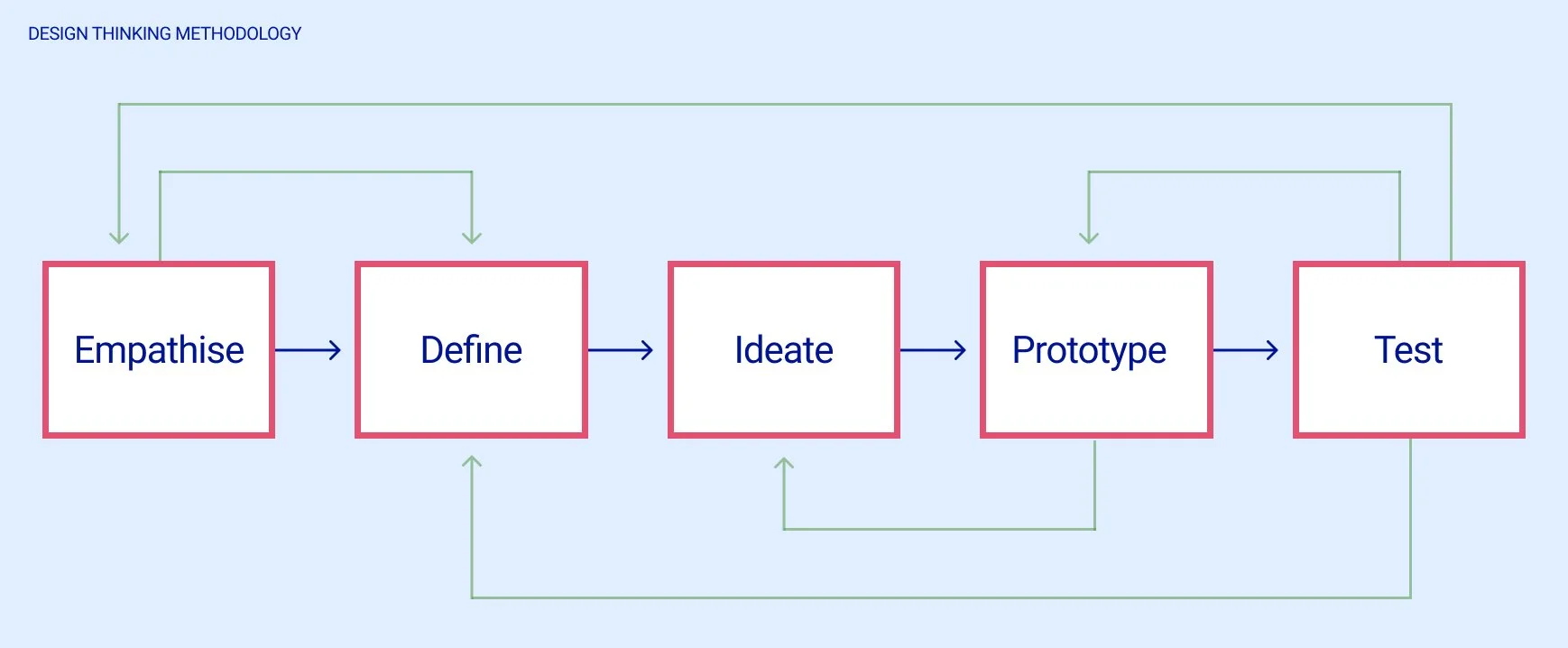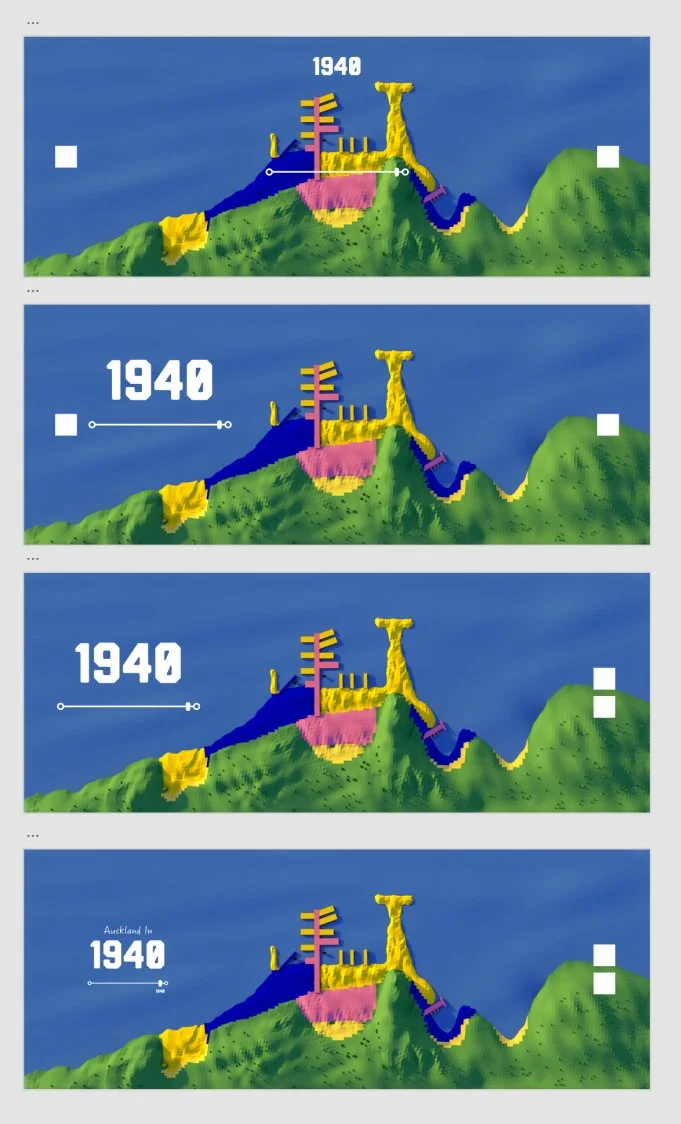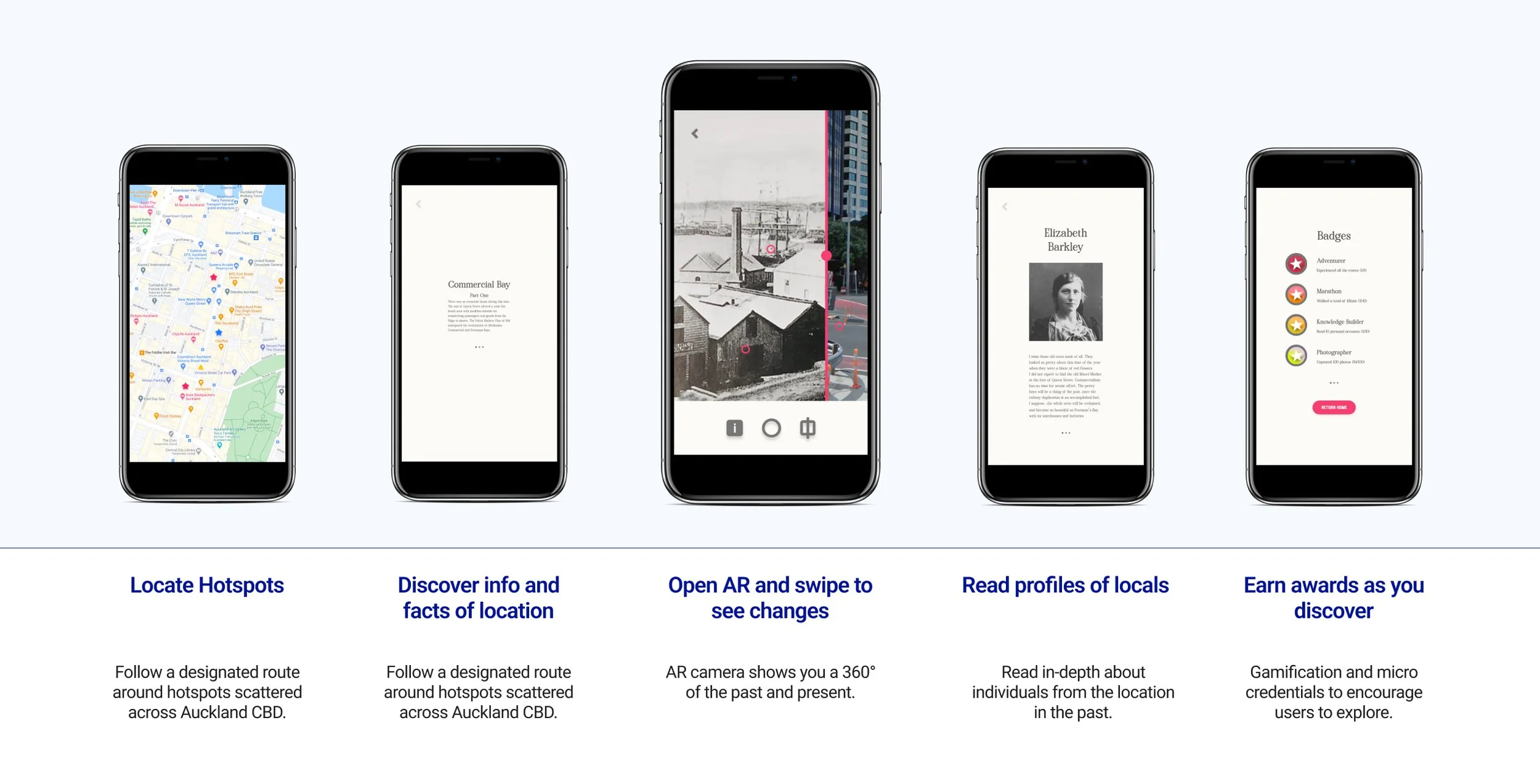How can an interactive experience educate families about the history of Auckland City’s land reclamation and explore personal accounts?
Tapātai
UX Research / UI / Installation / Copywriting
July - August 2020
Context
Client: Auckland Council
Post COVID-19 lockdown, we observed Auckland streets noticing they were far emptier than usual. With the economy struggling, especially local businesses in the tourism industry finding it hard to stay afloat.
As a team of four, we were briefed to create a concept design of a new activation located in the Ellen Melville Centre. Focusing on conveying a theme and creating ongoing engagement intended with the envisaged target market.
My Roles
Creative Director
Project Manager
Contextual & User Research Lead
UI & Prototyping
Usability Testing
Copywriting
Key Challenges
Unpacking the brief and problems as connections are made.
Understanding technological feasibility and business viability for possible design solutions.
Producing, iterating and testing design solutions.
Utilised Design Thinking Methodology during our research and design processes. Iteration process was added during prototyping.
Unpacking the brief and problems as connections are made.
Unpacking the brief
Given a few sets of themes, we approached our chosen focus on Elemental Festival an annual Auckland festival that focuses on storytelling about Auckland through arts, eats and beats.
Our Problem Statement
After the COVID-19 lockdown, we discovered Auckland city streets are far emptier than usual due to the drop of international and domestic travellers.
Auckland’s economy has decreased significantly due to being heavily reliant on art, cultural and travel activities that have been reduced. As well as local businesses struggling to stay afloat.
Our focused research question at this stage.
Making Connections
Research and ideation process for our design hypothesis tackling the problem statement.
Understanding technological feasibility and business viability for possible design solutions.
At each stage, we utilised Design Thinking methodology to move forward with defining new problems, making design decisions and iterations.
Prototyping, iterating and testing design solutions.
User Journey
Users key touchpoints
Retrieving Content
As part of my researcher role included retrieving information from 1840 - 1940 about lifestyle and urbanisation insights. As a copywriter, this content contributed to writing up key insight summaries of what life and personal experiences were like at 20-year intervals from 1840.
Spent a day at Auckland City Central library and read through archives of several personal accounts, diary entries, newspapers from the special collections!
Interactive Wall
UI development from lofi to hifi prototypes. Visual low-poly model graphics designed by our Motion Graphics designer.
AR Wayfinding App
UI development from lofi to hifi prototypes bringing in cohesive visual branding, a new learning of exploring AR interfaces and testing simplicity of navigation.
Iterations
A key insight from user testing showed the difficulty for users to intuitively see and use the timeline slider as well as positioning the QR code prompt icon that would reduce distraction and confusion to the experience.
Design key features
Interactive Wall Projection
Slide through 100 years of land reclamation
Landing screen
Observe a close up of geographic changes and read about lifestyles during that period.
Read about personal accounts and experiences of individuals during that time.
AR Wayfinding App
Client Response and Project Evaluation
“Thoroughly impressed with the consideration of how technology and emotive story-telling narrative were combined. Understanding viability and business approach for the user experience during and after the main interactive wall experience.”
The process of this project allowed me to develop my collaboration skills working with other disciplinary and leadership as project manager. The opportunity to pitch this concept and test our process to our clients allowed insights that drove the project in different perspectives which were crucial to making final design decisions. The iteration process of prototyping allowed an insightful learnings from user behaviour with technology and platforms I haven't used before such as interactive screen projection and AR. If there were more time for this project, I'd love to further explore the AR concept and develop the user journey for beyond just interaction with our screen and app such as marketing and strategy.
Design Team:
Aditya Prima (Branding)
Connor Ransley (Motion Graphics)
Sophia Jin (UI, UX)












